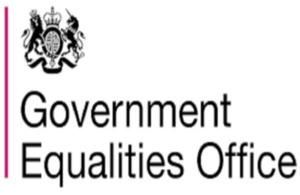News story: New support launched for disabled adults to improve health
There are potentially around 3.5 million disabled adults at greater risk of poor health due to inactivity, and evidence shows they are twice as likely to be inactive to non-disabled people.
To address this, disabled people will be supported by new resources to help them get more active to improve their health.
There are 11.5 million disabled people in England and nearly half (42%) of them are inactive per week compared to 21% of those with no disability, a two-fold difference.
However, 4 in 5 disabled people report they would like to do more physical activity, highlighting continued barriers that prevent them from being active.
Concern around safety is often cited as a major barrier to disabled people undertaking physical activity, but the review has shown that when performed at an appropriate level and intensity, this should not hinder them being more active and will lead to health benefits.
The UK is at the forefront of action to address these inequalities, with new nationally developed resources to help disabled adults get more physically active being launched at the International Society for Physical Activity and Health Congress (ISPAH) in London today, Monday 15 October 2018.
The first is a world first evidence review published by Public Health England (PHE) that highlights a critical need for disabled adults to do more physical activity to improve their health. The second is a new UK Chief Medical Officer (CMO) infographic to make physical activity recommendations more accessible and to support disabled people in getting more active.
These works consider the breadth of impairments, covering long-term physical, sensory, cognitive, and mental health impairments, something that has never been done before in the UK.
They have been developed to address psychological barriers which play the biggest role in preventing disabled people from taking part in physical activity, including the attitudes and perceptions of disabled people and non-disabled people that activity might be unsafe or worsen their disability.
While national physical activity guidelines are currently produced for the whole population, the new evidence shows there is no risk for disabled people undertaking physical activity.
It is recommended that disabled people build up physical activity, concentrating first on frequency, then duration, before finally raising the intensity level. This is especially significant for those that are not active at all and those with other existing health conditions.
The review shows that being more active will improve their health, including improved fitness, muscle strength, undertaking of everyday tasks (for example housework and gardening), wellbeing, and sense of community, as well as reduced risk of diseases such as cardiovascular disease.
Launching PHE’s evidence review at the ISPAH Congress, Duncan Selbie, PHE chief executive, said:
Moving more is important for everyone and we must better support people who face barriers to being active.
We can all find something that suits our needs and abilities from walking to playing ball games or joining a gym.
Alongside the evidence review, the existing UK CMOs’ physical activity guidelines have been made more inclusive of disabled people. An infographic for healthcare professionals and disabled people has been produced that better highlights the benefits and practical steps to getting active to improve health.
The infographic has been developed in collaboration with 350 disabled people, 10 disabilities organisations and 50 healthcare professionals and is endorsed by the 4 UK Chief Medical Officers.
Chief Medical Officer for England, Professor Dame Sally Davies, said:
Being active is good for our health – both physical and mental.
It is important that disabled people in the UK do not miss out on the benefits that being active can bring. I hope that the new infographic, designed by disabled people for disabled people, will help more people reap the benefits of physical activity in a safe and healthy way.
Barry Horne, Chief Executive for Activity Alliance, said:
These new resources are a step forward in ensuring that the health sector thinks about disabled people as individuals, who can be active, given the right opportunities.
Our research shows that attitudinal, economic and societal barriers continue to prevent so many disabled people from being active. There remains a significant amount of work to do so we welcome PHE’s collaboration on this matter of huge importance to public health.
ISPAH is co-hosted by PHE and Sport England and co-sponsored by the European network for the promotion of health-enhancing physical activity (HEPA Europe) and the World Health Organization (WHO).
It aims to bring the best international minds together to bridge the gap between physical activity research, policy and practice to tackle health inequalities and support healthier nations across the world.
